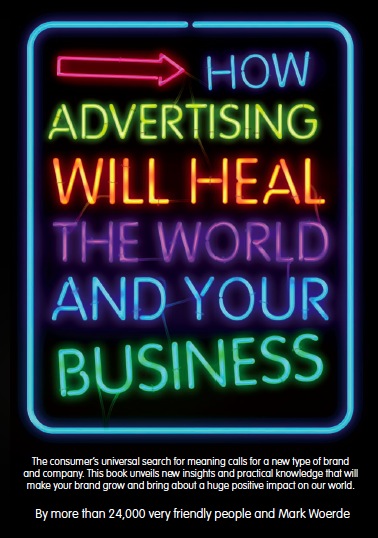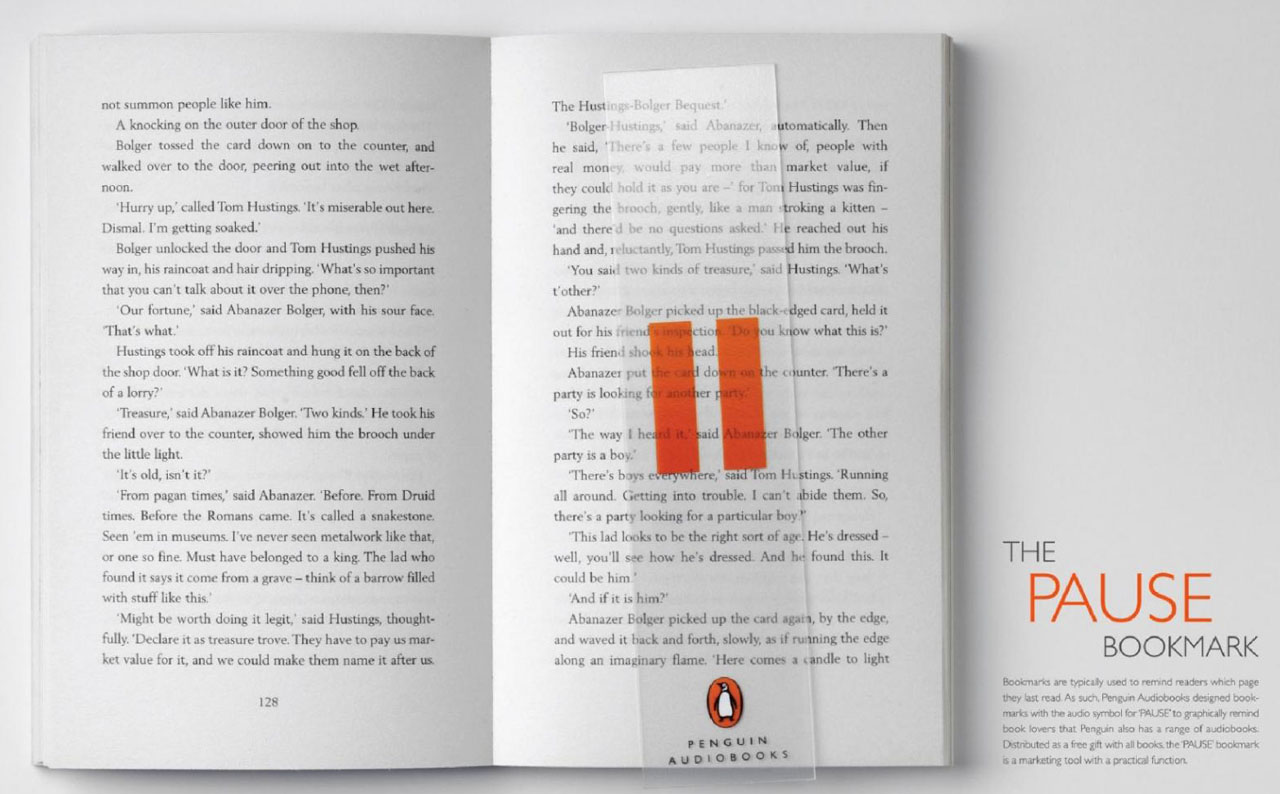Amsterdam-based ad guru Mark Woerde launches revolutionary new book: ‘How Advertising will Heal the World and Your Business’
 ‘How Advertising Will Heal The World And Your Business’ is a revolutionary new book that lays the foundations for a radical paradigm shift in branding and advertising.
‘How Advertising Will Heal The World And Your Business’ is a revolutionary new book that lays the foundations for a radical paradigm shift in branding and advertising.
Written by Amsterdam-based advertising director Mark Woerde, it gives brands and advertising companies a unique insight into how, through ‘Meaningful Prosocial Branding’, they can play an important role in, and gain relevance by, making positive effects on society and business.
Recent research shows that 74% of people worldwide believe helping others makes their life meaningful, while 64% prefer brands that help consumers help others.*
The book was created as a result of a global study that was initiated by Woerde’s non-profit organisation, Letsheal.org.
A total of 24,224 people from the world’s 15 largest economies (as measured by total GDP in 2009) and Belgium took part in an online survey conducted by Winkle Research between October and November 2010. The results were then independently verified by an advisory board, which included Professor Dirk Salomons (director of the Program for Humanitarian Affairs, Columbia University, NY).
Says Professor Dirk Salomons: “Soon, kindness will be a global brand, bridging the chasm between compassion and commerce, and prosocialism will carry the day. Mark Woerde and his 24,000 friendly people have brought a new ethical dimension to the world of advertising.”
The importance of a meaningful life
Overall, the findings show that most people are empathic and recognise the needs of others, with:
· 85% considering a meaningful life to be a basic need.
· Helping others has an important effect to 74% of those who participated, and 80% of those are not looking for anything in return.
· 60% would like to help more than they do now, and this number goes well beyond 80% in India, China, Brazil and Mexico.
Researchers linked these figures to a universal search for meaning that has developed from the recent financial crisis, one where people are seeking comfort in the virtuous nature of mankind. They also found that:
· People with meaning are less depressed and have a more positive attitude to life.
· Only 16% of those taking part admitted to not actively searching for a meaningful life.
· The three most important issues people care about are health, the environment and children’s rights.
· In all countries, the same levels of empathy and prosocial, helpful behaviour were found.
· Women were shown to be the most empathetic, while older people are more altruistic as younger people like others to know that they have helped.
· Surprisingly, social media users are more prosocial in real life as they do more volunteer work, and are more likely to offer their seats or give directions.
Search for meaning = meaningful business
In general:
· 66% of respondents stated they like doing more for others beyond donating, but often lack the time, resources, energy and inspiration.
· 68% would prefer to work for a Prosocial Company.
· 64% prefer Meaningful Prosocial Brands that go beyond conventional CSR and help people to help others over normal brands.
This attitude provides companies with a wealth of opportunities to help their consumers help others. Brands can help fulfill the basic, strong and growing needs to live a meaningful life by engaging their target groups and using their marketing power to tackle social issues. By applying universal ideas and values in their practice, these brands make an impact on the environment they operate in; attract better, more loyal staff and help the target audience to feel good by doing good themselves. An added bonus for the companies themselves is that, as a result, their actions help increase sales.
Meaningful Prosocial Brands are better equipped to earn attention, as opposed to buying it, and although only 13% of populations are labelled as social media savvy, it is clear that Prosocial Brands can benefit more from social networks than ordinary brands. But would-be Prosocial Companies should be warned not to see these opportunities as an easy way to make money. Those surveyed stated that social goals should be ambitious, transparent, the contribution significant and the business responsible.
 The book’s author, Mark Woerde, (pictured) says: “The recent financial crisis left many re-evaluating capitalism and its role in our society. The old capitalist credo, ‘survival of the fittest’ is gradually giving way to the stronger, bolder counter: ‘survival of the kindest’. People are asking for more and better from the companies they choose to buy from. Just imagine what would happen to the world if even a fraction of the US $450 billion spent annually on advertising went into Prosocial Marketing instead? Building Meaningful Prosocial Brands requires new, bold ideas.
The book’s author, Mark Woerde, (pictured) says: “The recent financial crisis left many re-evaluating capitalism and its role in our society. The old capitalist credo, ‘survival of the fittest’ is gradually giving way to the stronger, bolder counter: ‘survival of the kindest’. People are asking for more and better from the companies they choose to buy from. Just imagine what would happen to the world if even a fraction of the US $450 billion spent annually on advertising went into Prosocial Marketing instead? Building Meaningful Prosocial Brands requires new, bold ideas.
Our focus has to widen beyond selling things, to facilitate people to live a meaningful life by helping others. This book, and the research it was based on, unveil new insights and practical knowledge that can make brands grow and bring about a huge positive impact on the world.”
